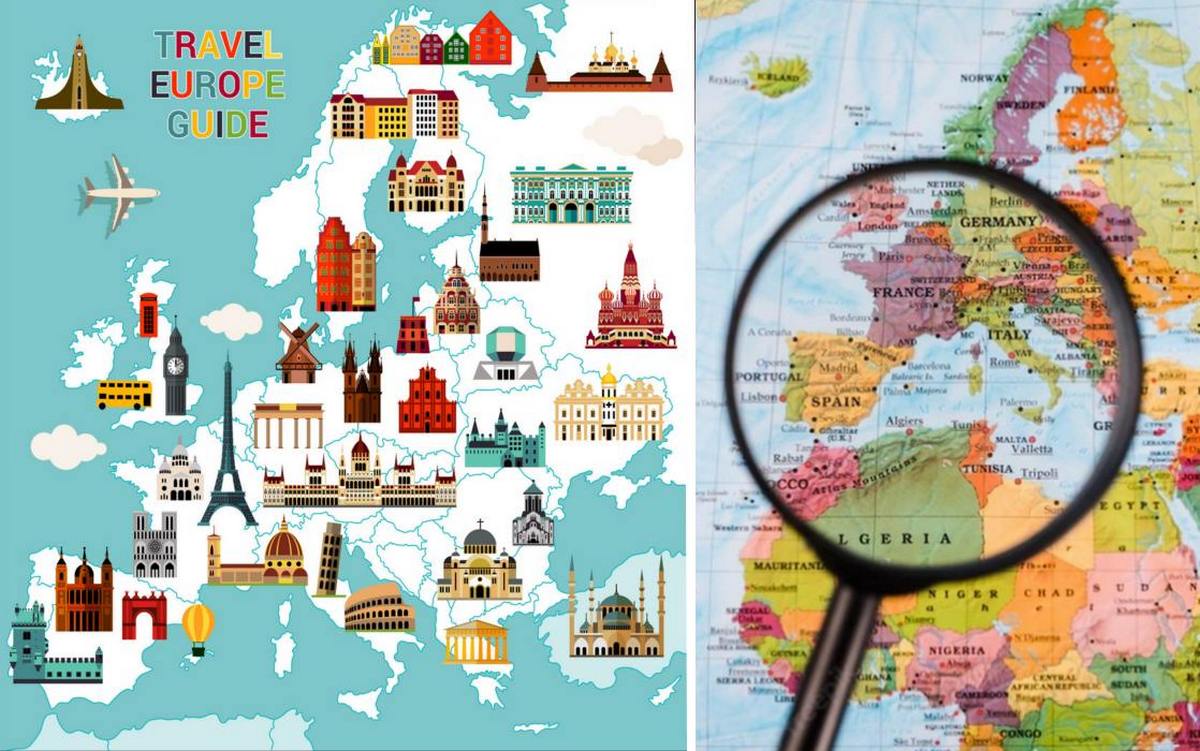Some of Europe’s most visited cities have experienced a surge in short-term rentals from tourists (primarily via the US-based Airbnb platform), leaving many locals complaining about the rising cost of living due to skyrocketing housing prices. And indeed, they can provide themselves with housing, associating it with overturism. Now the authorities of 23 cities are calling on the EU to take legislative measures at the level of the entire European Union to solve the problem of short-term rentals for tourists.
After two years of stagnation due to the coronavirus pandemic, European tourism is finally coming back to life — almost every country in the region has opened its borders to foreign tourists. It would seem that this is good news for business and the economy, but this prospect causes many problems for citizens.
Another problem has plagued European cities — tourists actively rent housing and therefore create excessive competition in the real estate market: locals do not get properties at adequate prices. According to SchengenvisaInfo, in connection with this, the European Free Alliance (ESA) on short-term rentals has published a letter, that talks about the need to strengthen short-term rentals to curb the tourist flow to popular European locations.
The administration of tourist cities claims that the European Commission is abandoning the draft legislative initiative that would regulate the process of short-term rental of facilities for vacationers. Let’s list the cities that supported the initiative to limit the short-term housing rental market:
Amsterdam, Netherlands
Arezzo, Italy
Athens, Greece
Barcelona, Spain
Berlin, Germany
Bologna, Italy
Bordeaux, France
Brussels, Belgium
Valencia, Spain
Warsaw, Poland
Vienna, Austria
Krakow, Poland
Cologne, Germany
London, Great Britain
Milan, Italy
Munich, Germany
Paris, France
Porto, Portugal
Prague, Czech Republic
Utrecht, Netherlands
Florence, Italy
Frankfurt, Germany
Helsinki, Finland
For example, in Amsterdam, the number of short-term vacation rental offers increased from 4,500 in 2013 to 22,000 in 2017. Meanwhile, in Lisbon’s Alfama district, more than 55 percent of apartments are currently offered for short-term rentals on booking platforms including Airbnb. In addition, they have increased by 60 percent in central Florence since 2015, and by a shocking 100 percent in Krakow between 2014 and 2017.
Over the years, several cities across Europe have faced the problem of short-term rentals, as citizens complain that they make it difficult to rent for longer periods. However, these types of rentals are a good way to earn money for landlords who have a spare room or apartment.
“Cities need help enforcing regulations and prosecuting illegal STHRs [short-term vacation rentals]. Currently, this is complicated by the fact that platforms refuse to share important information with the authorities. Therefore, access to data must be ensured to ensure compliance. Otherwise, municipalities’ administrative costs will increase significantly due to litigation costs and investments in a professional capacity to verify rental data in alternative ways, monitor complaints and signs of illegal STR activity, and impose fines,” the letter said.
However, they also increase the cost of rent, reduce the supply of long-term housing and create a host of inconveniences for neighbours. Some authorities have responded by setting special fees for STHRs or considering banning companies like Airbnb from operating on their territory. For example, in Barcelona last year, after several years of complaints from residents about constant noise, high rental prices, and a shortage of apartments, the municipality announced a ban on Airbnb and rentals of up to 31 days.
On August 4, HOTREC, a business association representing the European hospitality sector, called on European Union countries to impose obligations on platforms and short-term hosting. The call was made for the authorities to begin reviewing the short-term rental business.
Commenting on this issue, HOTREC CEO Marie Audren emphasized that the EU tourism and hospitality sector should provide regulations that would help solve the problems of short-term rentals. In addition, the World Travel and Tourism Council (WTTC) has previously supported Estonia for the reasonable taxation of these types of rentals. At the same time, he praised France for its long-term investment in the community, allowing the government and residents to benefit even from hospitality.
The Alliance of European Cities believes that if the Commission does not put the proposal to a vote shortly, “the affordability of housing, as well as the livability” of European cities will be at stake. Last fall, the EU Commission announced a legislative initiative to regulate short-term rentals, and after opening it for public discussion, it was postponed several times. So far, the European Commission has not set specific deadlines for the official evaluation of current proposals. It is assumed that the initiative will not be discussed at all in the near future, since it has not yet appeared on the list of plans until December 2022.
DIP previously wrote that “Estonia wants to ban Russian tourists from visiting Europe.”

